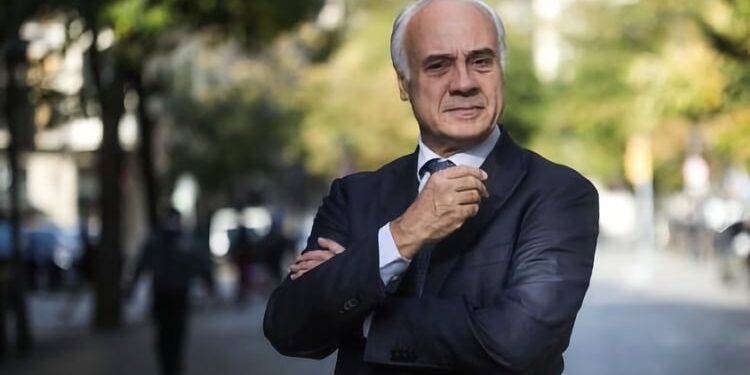Luis Ayllón
The Council of Ministers yesterday approved the appointment of Juan Antonio March Pujol, as The Diplomat had reported. March comes to office after more than twelve years away from the Diplomatic Career.
The Government had asked the Indian authorities for permission to appoint Juan Antonio March as ambassador, after the previous ambassador, José María Ridao, requested in December 2023 the Minister of Foreign Affairs, José Manuel Albares, to leave the post in New Delhi. , for which he had been appointed in July 2021.
Since then, the Government had to wait five months for the Indian authorities to grant the agreement, an unusually long period between two countries that do not maintain any type of bilateral disagreement. The sources consulted by The Diplomat have attributed this delay to the desire of the Narendra Modi Government to express, in some way, its disagreement with March’s appointment or to the fact that India has been immersed in elections, which have a very complex system. and that concluded precisely yesterday, June 4. However, some ambassadors from other European countries whose approval had been requested later had obtained it.
Juan Antonio March is considered very close to the former President of the Government José Luis Rodríguez Zapatero and the former Minister of Foreign Affairs Miguel Ángel Moratinos, who would have apparently expressed interest to the Indian authorities about the delay in granting the agreement.
Born 66 years ago and graduated in Law from the University of Barcelona in 1981, March entered the Diplomatic Career in 1987, from which he has been away for more than twelve years. His last diplomatic position was that of Spanish ambassador to Russia, where he was between 2007 and the end of 2011, until the arrival of the PP to the Government.
Juan Antonio March was a member of the Cabinet of the European Commissioner for North-South Relations, Claude Cheysson (1988-1989), from which he was in charge of the EU’s Mediterranean policy. In addition, he was permanent delegate of the European Union to the OECD Development Assistance Committee in Paris (1989-1993), general director of Cooperation with Latin America and vice president of the Spanish Agency for International Cooperation in Madrid (1993-1996).
March was also stationed in Geneva, where he held the positions of permanent representative of Spain to the United Nations and ambassador to the World Trade Organization (WTO), both between 2004 and 2007. From the first of the two positions, March offered – with the support of the then minister, Miguel Ángel Moratinos, to the United Nations authorities for Spain to take charge of the renovation of Room XX of the UN Palace of Nations in that Swiss town, later renamed ‘Human Rights Room’.
In this task, the ambassador was, therefore, the main architect of the construction of the Dome by the Spanish painter Miquel Barceló in the aforementioned room. According to his offer, the State would bear 30% of the cost of the work and the rest would be private contributions.
After accepting the offer, the Spanish Government budgeted the cost of the commission to the painter Miquel Barceló at 16.6 million euros, although in the end, that cost exceeded 20 million. The construction of the dome was surrounded by controversy, among other reasons because 500,000 euros were allocated to it from the Development Assistance Fund (FAD), something that the Government tried to justify by pointing out that the work had as its objective the promotion of human rights and multilateralism.
In 2017, the then president of the Court of Accounts, Ramón Álvarez de Miranda, denounced in the Congress of Deputies irregularities in the State’s contribution to the leadership, in the years 2007 to 2011, indicating that “the planned contribution, of five million euros in 2008, it finally rose to 11.5 million due to the increase in cost and the non-compliance with financing forecasts by private entities” and that the State had to assume a much higher percentage of the cost, given the lack of private contributions.
The Barceló Dome was inaugurated on November 18, 2008, almost a year late than the scheduled date, and in the presence of Kings Juan Carlos and Sofía, José Luis Rodríguez Zapatero, and the then Secretary General of the UN, Ban Ki-Moon; and the then Turkish Prime Minister, Recep Tayip Erdogan, with whom the head of the Spanish Executive promoted the Alliance of Civilizations.
Juan Antonio March was present at the event as vice president of the ONUART Foundation, a position that he combined with that of Spanish ambassador to Russia, a position he held from December 2007 until the arrival of the PP to the Government in December 2011. Since then, had dedicated himself to the ONUART Foundation, of which he served as President until last February, when he was replaced by José Luis Bonet, president of the Spanish Chamber of Commerce and Industry.







